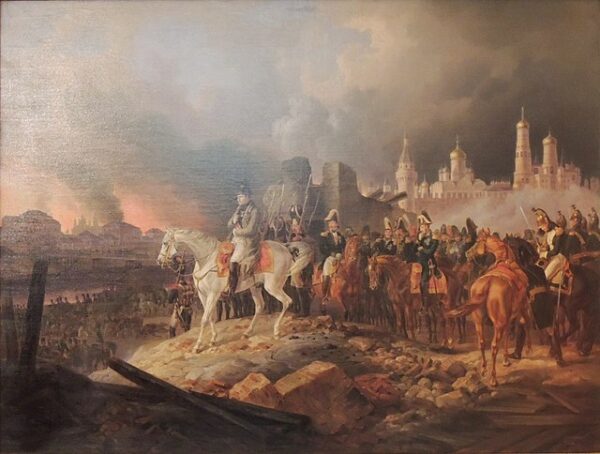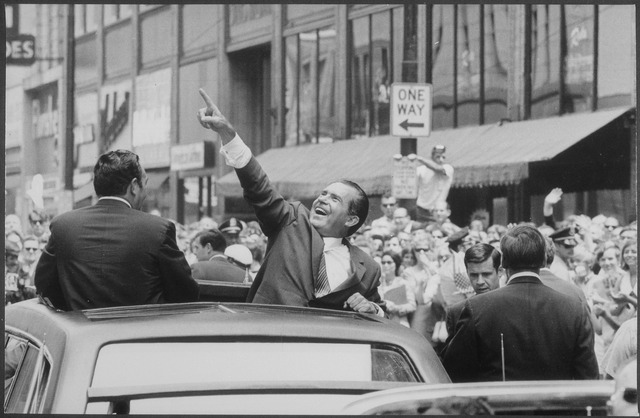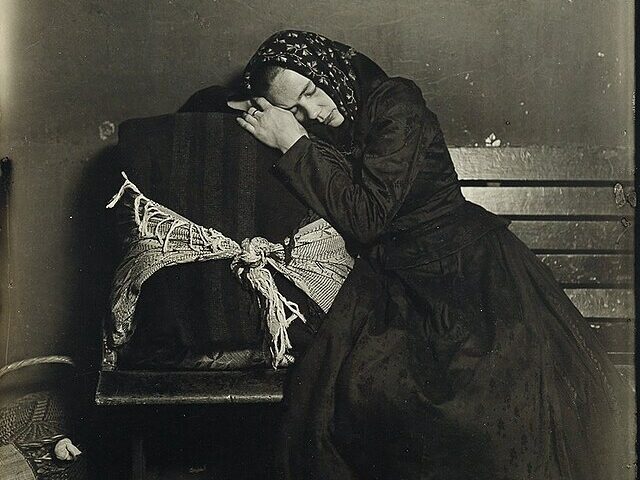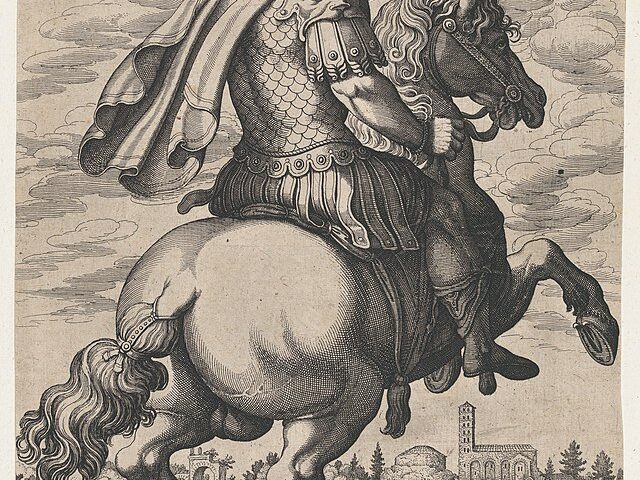As the sun rose over Russia on September 15, 1812, Napoleon had already begun his ride to set up his headquarters in the Kremlin. The French Empire had made the long march to Moscow.
“He would have passed through a beautiful city described as a “fantastic jumble” of churches, palaces, coloured domes and gardens, writes one chronicler. “It was a city that was now almost empty. The Imperial Guard soon marched through the city’s abandoned streets while playing La Victoire est a Nous, but that was before the fires started. “The governor of Moscow, Count Rostopchin, before he left, had given orders to have various buildings and stores blown up or set on fire. These orders were carried out by Police Superintendent Voronenko and his men. Later, looters and careless French soldiers would contribute to the conflagration fueled by the many wooden houses of Moscow. Large parts of Moscow were in flames as night came. The fires would blaze for days.”
The emperor watched as supplies to replenish his army turned to smoke.
Napoleon’s march on Moscow in 1812 was a pivotal moment in his military campaign. As Emperor of the French, Napoleon had established a vast empire across Europe, but his ambitions did not stop there. In June 1812, he led a massive army, known as the Grande Armée, into Russia with the goal of expanding his influence and compelling Tsar Alexander I to join his Continental System, an economic blockade against British trade.
The march on Moscow was grueling and fraught with challenges. The Grande Armée faced harsh weather, difficult terrain, and constant harassment from Russian forces who employed scorched-earth tactics, burning villages and crops to deny Napoleon’s army vital resources. Despite these adversities, Napoleon’s tactical brilliance allowed his army to advance deeper into Russia, culminating in their arrival at Moscow.
The occupation of Moscow marked a turning point in the campaign. As the Russian winter set in, Napoleon faced dwindling supplies, worsening weather, and declining morale among his troops. Realizing the dire situation, Napoleon made the fateful decision to retreat from Moscow in October 1812. The withdrawal would prove disastrous, as the harsh Russian winter and relentless Russian pursuit would eventually decimate his once-mighty Grande Armée, turning the invasion into a catastrophic failure.
Napoleon’s march on Moscow and the subsequent retreat were instrumental in his downfall. It not only weakened his military power but also shattered his aura of invincibility. The Russian campaign highlighted the limits of his strategic genius and the formidable resilience of the Russian people. Ultimately, this ill-fated campaign played a crucial role in Napoleon’s eventual defeat and exile, marking the beginning of the end of his rule and the Napoleonic era in Europe.






